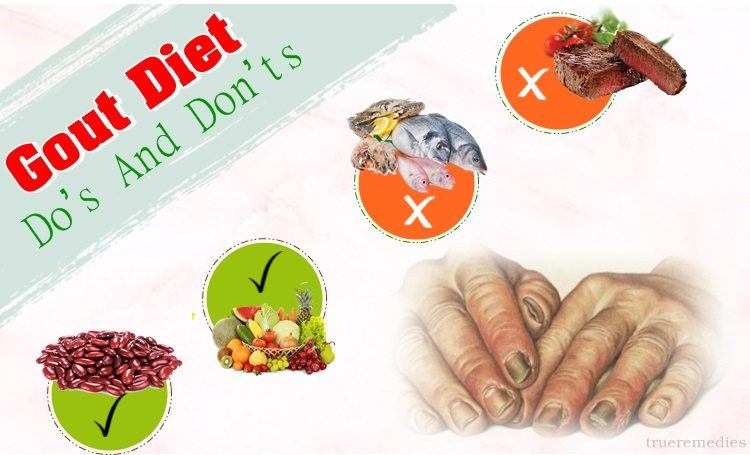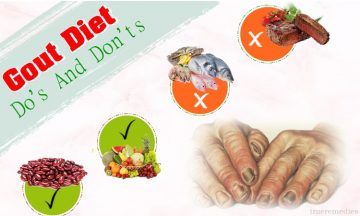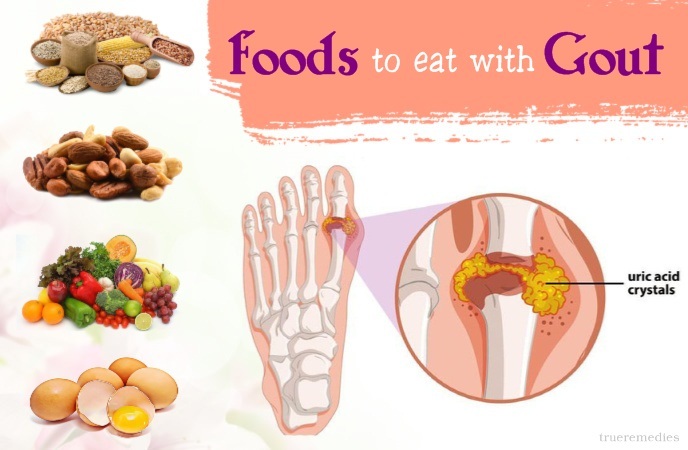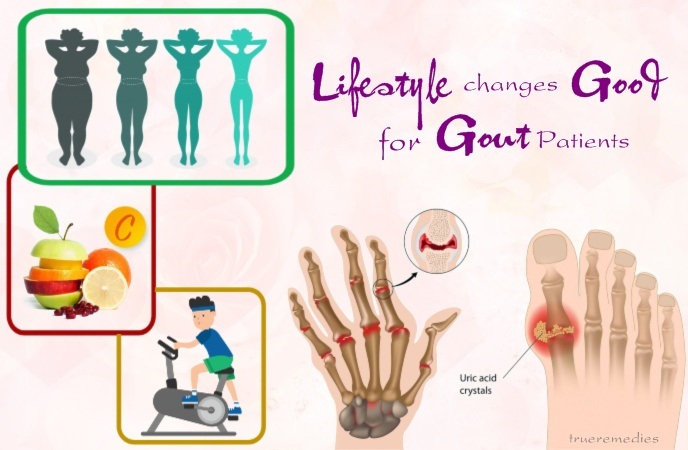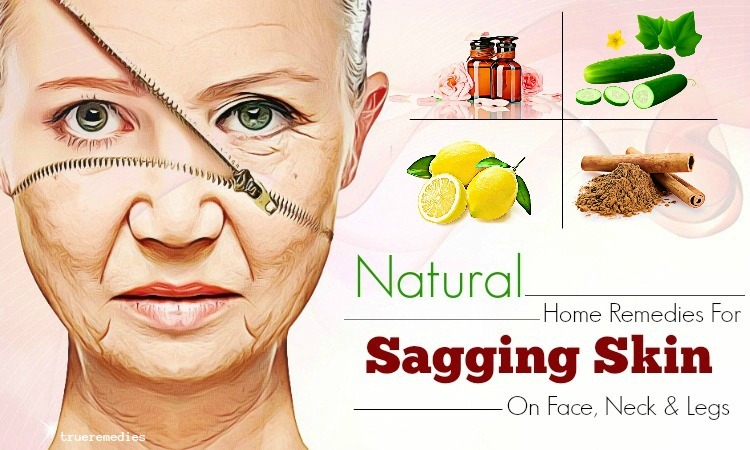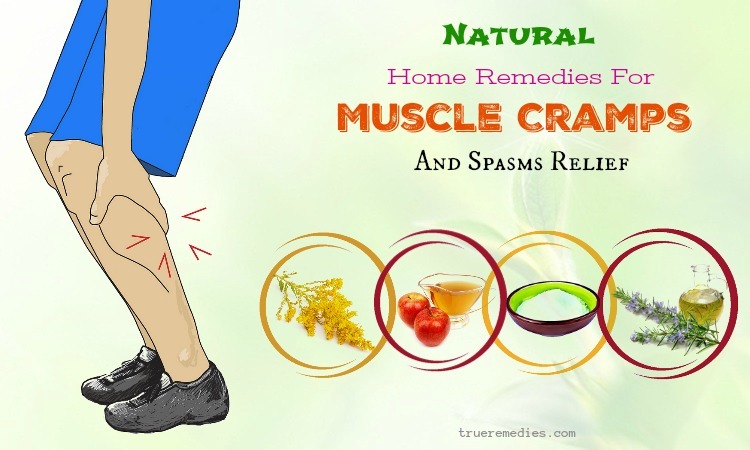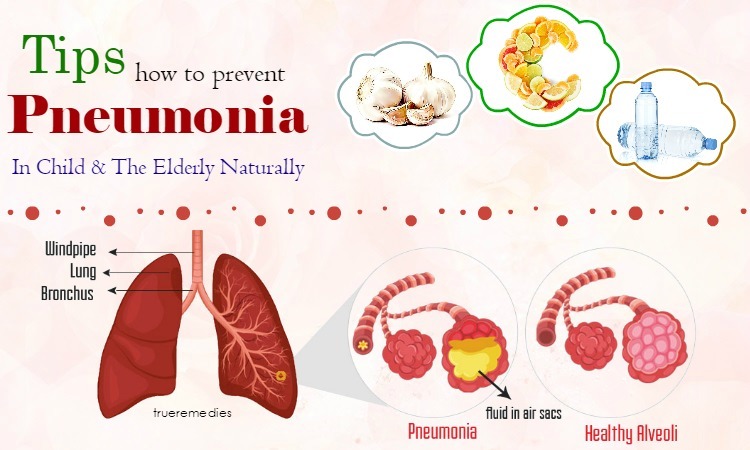Contents
Gout is a type of joint inflammation that causes swelling, sudden pain, and difficulty in walking. However, we can still control this disease by using drugs, balancing daily diet, following the scientific lifestyle. These contribute to the effectiveness of gout treatment, but not everyone knows the gout diet do's and don'ts. Let’s check them out on TrueRemedies!
- 37 Home Remedies For Gout In Hands And Feet
- 10 Gout-Causing Foods High In Uric Acid To Avoid
- 20 Tips How To Control Uric Acid Levels Without Medicine
I. What Is Gout?
Gout is a complex and common form of arthritis that affects anyone. It affects about 8.3 million people in the United States[1]. It is characterized by redness, swelling, tenderness, severe, sudden attacks of pain in the joints, often the joint at the big toes[2] [3] [4]. A gout attack can occur suddenly, which often wakes you up at night with the heat sensation in the big toes and last 3 to 10 days[5]. The affected area is swollen, hot, and so tender that only the sheet on it seems intolerable. Although the symptoms of gout may come and go, a few ways may help to manage symptoms and prevent gout flares-up.
II. Symptoms Of Gout
- Acute arthritis: Swollen, painful joints, especially the joints of the big toes.
- Urate deposition: Urate crystals under the skin can move under the ear canals, in the elbows and kneecap, or near the heel
- Urate and uric acid stones in the kidney and urinary systems, interstitial nephritis, and kidney failure
- Blood tests show uric acid levels more than 400 micromoles/liter
III. Who Are At A High Risk Of Gout?
- Family history of gout[6]
- Overweight and obesity
- Improper diet, eating too many foods containing purines
- Alcohol and coffee addiction
- Taking too many diuretics, such as Hydrochlorothiazide and Lasix that can increase uric acid, causing acute gout attacks
IV. The Link Between Foods And Gout
Did you know that some purine-containing foods can cause gout attacks by increasing the level of uric acid? For healthy people, purine-rich foods are not harmful to the body. However, people with gout have the inability to remove uric acid, so consuming too much purine will accumulate uric acid and cause gout attacks[7].
To prevent gout attacks, you need to limit eating purine-high foods and take medicine prescribed by your doctor[8].
Purine-high foods are animal organ meats, red meat, seafood, alcohol, and beer[9] [10]. However, according to researchers, some purine-rich vegetables do not trigger gout attacks[11]. Besides, fructose and sweets can increase the risk of gout even though they are not high in purines[12]. Meanwhile, low-fat dairy products, soy products, and vitamin C supplements can help prevent gout because they may reduce uric acid levels in the blood[13]. Fat-rich dairy products do not seem to affect uric acid levels[14].
V. Foods To Eat With Gout
TrueRemedies Partner Solutions

Need a Help from the Leading Expert Online, Available 24/7?
They’re all here and ready to answer your questions online or by phone. Keep asking questions until you get the answer you need.
When it comes to the gout diet do’s and don’ts, there are a lot of things that you should not miss. Although you need to avoid many foods if you have gout, you can still enjoy plenty of foods low in purine. Foods are considered low in purine when they contain less than 100 milligrams of purines per 100 grams (3.5 ounces).
Here are some foods that are low in purine and safe for gout patients[15] [16].
- Legumes: Lentils, beans, soybeans, tofu, etc.
- Whole grains: Oats, barley, and brown rice
- Nuts: All healthy nuts and seeds
- Fruits: It is fine for gout patients to eat all fresh fruits. Cherries may even aid in preventing gout attacks by reducing uric acid levels and relieving inflammation[17] [18]
- Vegetables:Gout patients can eat all vegetables, including potatoes, eggplants, dark green leafy vegetables, peas, and mushrooms.
- Dairy products:It is safe for gout patients to eat dairy products, but low-fat dairy seems to be beneficial for this disease[9] [19]
- Eggs
- Plant-based oils:For example, canola oil, coconut oil, olive oil, and flaxseed oil
- Herbs and spices:It is fine to eat all herbs and spices.
VI. Foods To Avoid With Gout
If you often suffer from sudden gout attacks, it is better for you to avoid eating high-purine foods – the main factor for gout. The foods that are considered high in purine have more than 200 milligrams of purines per 100 grams (3.5 ounces)[20].
Also, you should avoid foods that are high in fructose and moderately high in purine (150–200 milligrams of purines per 100 grams (3.5 ounces). These foods may trigger a sudden gout attack.
Here is the list of foods high in purine, moderately high in purine, and high in fructose that you need to avoid[16].
- All organ meats: Liver, sweetbreads, kidneys, and brain
- Game meats: Pheasant, venison, and veal
- Fish: Trout, herring, mackerel, anchovies, tuna, sardines, haddock, etc.
- Other seafood: Crab, shrimp, scallops, and roe
- Added sugars:Honey, high-fructose corn syrup, and agave nectar
- Yeasts: Brewer's yeast, nutritional yeast, and other yeast supplements
Additionally, patients with gout should avoid refined carbs, such as cakes, cookies, and white bread. Although these are not purine- or fructose-high foods, these foods are quite low in nutrients, and they may increase your uric acid levels[21].
VII. Foods To Eat In Moderation
Besides organ meats, certain fish, and game meats, gout patients can consume most meats in moderation. Patients should limit themselves to 115 to 170 grams (4 to 6 ounces) of these foods a few times a week[20].
They have a moderate level of purines, which is about 100 to 200 milligrams per 100 grams. Therefore, consuming too much of these foods may trigger a sudden gout attack.
- Meat:Chicken, beef, lamb, and pork.
- Other fish: Salmon in fresh or canned forms generally has a lower level of purines than other fish.
VIII. Lifestyle Changes Good For Gout Patients
Besides having a balanced and healthy diet, gout patients should follow several lifestyle changes to help reduce the risk of gout and sudden gout attacks.
1. Lose Weight
Excess weight may increase the risk of gout attacks, if you suffer from gout because the excess weight may make you more unsusceptible to insulin, resulting in insulin resistance. In those cases, the body is unable to use insulin properly to remove sugar from the blood. Also, insulin resistance increases the high levels of uric acid[22] [23].
According to research, losing weight may help to ease insulin resistance and reduce uric acid levels[24].
However, avoid crash dieting that you try to reduce weight very quickly by eating very little. According to research, rapid weight loss may raise the risk of gout attacks[25] [26] [27].
2. Regular Exercise
Regular exercise is an effective way to prevent a gout attack. Not only does exercise help you to maintain an ideal weight, but it also keeps low uric acid levels[28].
According to a study in 228 men, people who ran more than 8 km daily reported a 50% lower chance of gout attacks. Also, this was partly because of less weight[29].
3. Stay Hydrated
Another way to lower the risk of gout is to stay hydrated because adequate water intake may aid the body in removing excess uric acid from your blood, which flushes it out in your urine[30] [31]. If you do exercise a lot, it is more important for you to stay hydrated, as you may lose lots of water through sweat.
Read more: 26 Best Home Remedies For Frequent Urination & Burning At Night. This article was medically reviewed by Dr. Millie Lytle ND, MPH.
4. Take Vitamin C Supplements
According to research, vitamin C supplements help to reduce uric acid levels, which may aid in preventing gout attacks[32] [33] [34]. In fact, vitamin C may do this by aiding the kidneys in removing uric acid in your urine[35] [36].
However, research on taking vitamin C supplements for relieving gout is new. Therefore, more studies are required before making solid conclusions.
5. Limit/Quit Alcohol Intake
A common trigger for a gout attack is alcohol[37] [38] because the body prioritizes eliminating alcohol over eliminating uric acid, which allows uric acid to build up and form crystals[39]. Moreover, according to a study in 724 people, drinking liquor, wine, or beer may increase the risk of gout. Drinking 1-2 beverages a day increases the risk of gout by 36%, and 2-4 beverages a day increase the risk by 51%[40].
All content provided is for informational & educational purposes. We recommend you consult a healthcare professional to determine which suggestion is appropriate for you. We hope that the article of “gout diet do’s and don’ts that you should not miss” will help you to treat and prevent gout attacks effectively at home. For other useful, informative articles, please visit our News & Fact page.

